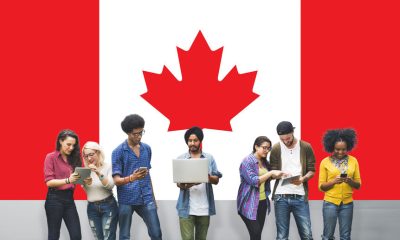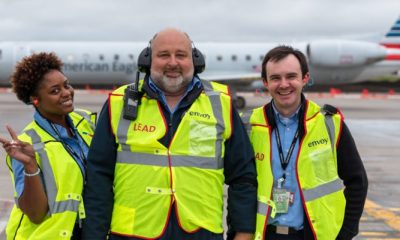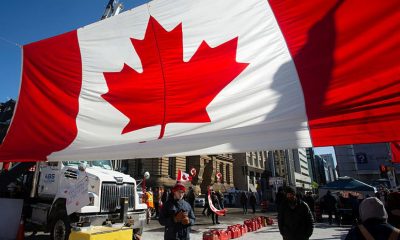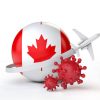Career
Work Visa Requirements in the USA: Guide for International Job Seekers
Are you an international job seeker considering opportunities in the United States? Understanding the work visa requirements is crucial for a successful transition. Navigating the work visa landscape can be complex, but with the right information and guidance, you can enhance your chances of securing a work visa and pursuing your career goals in the USA. Whether you’re an IT professional, healthcare worker, business executive, or a talented individual with extraordinary abilities, this guide will equip you with the knowledge you need to navigate the intricacies of the work visa system.
Please note that while this guide provides general information, it’s essential to consult official government resources and, if needed, seek professional advice to ensure accuracy and compliance with the most up-to-date regulations. With the right guidance, you can embark on your journey to work and thrive in the United States.
Types of Work Visas in the USA
The United States offers various work visa categories to cater to different employment needs. Here are some of the most common work visas:
- H-1B Visa: This visa is designed for individuals with specialized knowledge or advanced degrees in fields such as engineering, IT, finance, or healthcare. It requires sponsorship by a US employer.
- TN Visa: Available to citizens of Canada and Mexico, the TN visa allows professionals in designated occupations to work in the US under the North American Free Trade Agreement (NAFTA).
- L-1 Visa: For multinational companies, the L-1 visa enables the transfer of employees from foreign branches to the US. It includes two subcategories: L-1A for managers or executives and L-1B for individuals with specialized knowledge.
- O-1 Visa: Intended for individuals with extraordinary abilities in fields such as science, arts, business, or sports, the O-1 visa requires proof of exceptional talent or achievement.
- E-3 Visa: Exclusive to Australian citizens, the E-3 visa allows professionals in specialty occupations to work in the US. It requires a job offer and labor condition application.
Eligibility Criteria for Work Visas
To qualify for a work visa in the USA, certain eligibility criteria must be met. While specific requirements vary across visa categories, some common factors include:
1. Educational Qualifications
Most work visas require a minimum educational level, such as a bachelor’s degree or higher, depending on the profession. Here’s a closer look at how educational qualifications impact work visa eligibility:
- Level of Education: Many work visas require a minimum level of education, typically a bachelor’s degree or higher. The specific degree requirements vary depending on the visa category and the nature of the occupation. For example, the H-1B visa, which is widely used by professionals in specialized fields, generally requires at least a bachelor’s degree or equivalent work experience.
- Field of Study: The field of study is another critical aspect of educational qualifications. Some work visas may have specific educational requirements tied to the occupation or industry. For instance, the TN visa under the NAFTA agreement may require a degree in a specific field related to the designated occupation. It’s essential to carefully review the educational requirements for each visa category to ensure your academic background aligns with the visa’s criteria.
- Accreditation and Recognition: The educational institution from which you obtained your degree can also impact work visa eligibility. Generally, the institution should be accredited and recognized by relevant authorities. For instance, degrees from universities and colleges that are accredited by reputable accreditation bodies are generally considered valid for work visa purposes. It’s important to ensure that your educational institution meets the recognized standards to avoid any complications during the visa application process.
2. Work Experience
Demonstrating relevant work experience in the field is often necessary to establish expertise and eligibility. Many work visa categories require applicants to demonstrate relevant work experience in their field of expertise.
The purpose is to establish that the applicant has the necessary skills, knowledge, and expertise to perform the job successfully. The required years of work experience may vary depending on the visa category and the specific occupation.
For example, the H-1B visa often requires a combination of education and work experience, with each year of higher education substituting for a certain number of years of work experience.
3. Specialized Skills
Certain work visas, such as the L-1 visa for intracompany transferees or the O-1 visa for individuals with extraordinary abilities, may have specific requirements related to specialized skills.
These skills should be directly relevant to the job or occupation for which the visa is sought. It’s important to showcase your unique skills and expertise through documentation and evidence to enhance your eligibility for these visa categories.
4. Industry Certifications and Licenses:
Depending on the occupation or industry, certain work visas may require specific certifications or licenses. These certifications validate the applicant’s expertise and professional standing within their field. For example, healthcare professionals applying for work visas may need to provide proof of their medical licenses or certifications.
It’s crucial to research the specific requirements for your occupation and ensure that you hold the necessary certifications or licenses to meet the eligibility criteria.
The Application Process
Applying for a work visa in the USA involves several steps. While the process can be complex, the following guidelines can help streamline your application:
- Research and Preparation: Understand the specific requirements and documentation needed for the chosen visa category. Gather essential documents such as educational certificates, work experience letters, and a valid passport.
- Employer Sponsorship: If your visa requires employer sponsorship, secure a job offer from a US employer willing to sponsor your visa application.
- Form Submission: Complete the necessary visa application forms accurately. This typically includes Form DS-160 for nonimmigrant visas and Form I-129 for employer-sponsored visas.
- Supporting Documentation: Compile supporting documents, such as educational transcripts, professional certifications, and letters of recommendation, to strengthen your application.
- Visa Interview: Schedule and attend a visa interview at the nearest US embassy or consulate. Be prepared to answer questions about your qualifications, job offer, and intentions to return to your home country.
Frequently Asked Questions Work Visa Requirements in the USA
Q1: What is the H-1B visa and how does it work?
The H-1B visa is one of the most sought-after work visas in the USA. It allows US employers to hire foreign professionals in specialized occupations. The visa is typically valid for three years, with the possibility of extension for another three years.
However, the H-1B visa has an annual cap, and the selection process is conducted through a lottery system when the number of applicants exceeds the available visas.
Q2: Can I apply for a work visa without a job offer?
In most cases, a job offer is required to apply for a work visa in the USA. However, certain visa categories, such as the O-1 visa for individuals with extraordinary abilities or the E-2 visa for entrepreneurs, offer alternative pathways without a specific job offer.
Q3: How long does the work visa process take?
The processing time for work visas in the USA can vary depending on the visa category, workload at the immigration authorities, and individual circumstances.
On average, it may take several months to process a work visa application. However, expedited processing options may be available for certain visa categories or urgent cases.
Q4: Can I bring my family with me on a work visa?
Many work visas in the USA allow dependents, including spouses and unmarried children under the age of 21, to accompany the primary visa holder. The dependent family members can apply for derivative visas, such as the H-4 visa or L-2 visa, to join the primary visa holder in the US.
Tips for a Successful Visa Application
You should consider the following to increase the likelihood of a successful work visa application. These tips are designed to help you present a strong case to immigration authorities and ensure that your application stands out among the pool of applicants.
You can enhance your chances of obtaining the desired work visa and pursuing your professional goals in the United States.
- Thoroughly research and understand the specific requirements and documentation needed for your chosen work visa category.
- Start the visa application process well in advance to allow ample time for gathering documents, completing forms, and scheduling interviews.
- Double-check all forms and documents for accuracy and completeness before submission to avoid delays or rejection.
- Consult with an immigration attorney or seek professional advice to ensure you meet all the necessary criteria and to address any concerns or questions.
- Prepare for the visa interview by reviewing common interview questions and practicing your responses. Be confident, articulate, and honest in your answers.
- Maintain clear communication with your sponsoring employer throughout the process to ensure all necessary information and support is provided.
Conclusion
Navigating the work visa requirements in the USA is crucial for international job seekers. By understanding the different visa types, eligibility criteria, application process, and tips for success, you can confidently pursue employment opportunities in the United States.
Remember to consult official government resources and seek professional advice to stay updated on any changes or updates to the visa requirements.


















